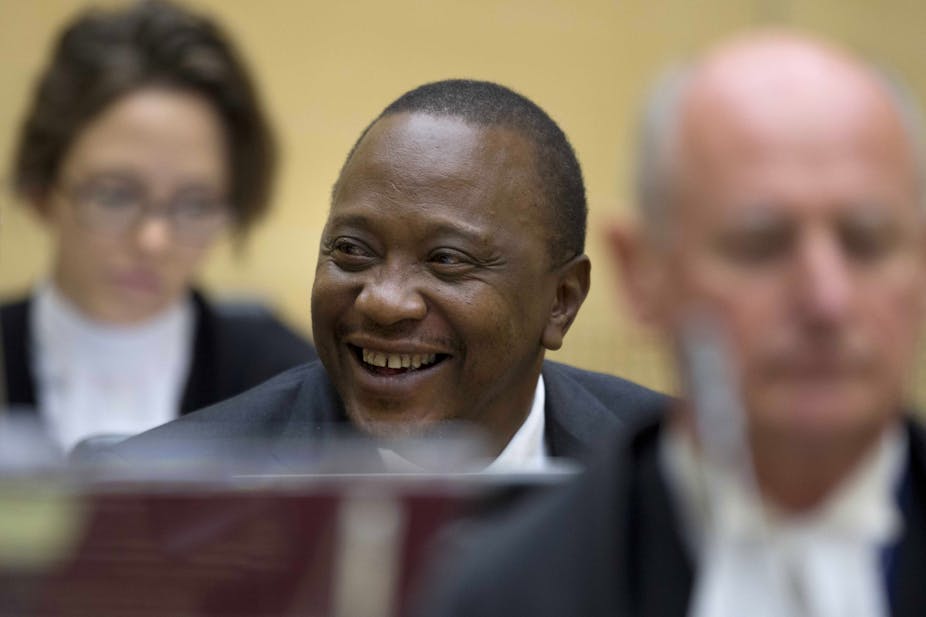Uhuru Kenyatta, incumbent president of Kenya, has finally appeared before the International Criminal Court (ICC) in The Hague. He is charged with murder, forcible transfer, rape, persecution, and other inhumane acts constituting crimes against humanity – all of which he denies.
The charges relate to ethnic violence surrounding the presidential elections in 2007-2008, during which some 1,200 people were killed, thousands injured, more than 900 women raped and hundreds of thousands of people were displaced.
But to date, no effective investigation or criminal prosecution has been conducted in Kenya, making the ICC the last resort for victims seeking justice – and the ICC has a major procedural hurdle to clear before the case against Kenyatta can truly get underway.
Hand it over
The first hearing on October 9 focused on Kenya’s compliance with requests from the prosecution, which has been unable to proceed with its case due to insufficient evidence. The prosecution contends that the Kenyan government has wilfully withheld financial and phone records that would prove President Kenyatta’s direct involvement in the post-election violence.
Irish lawyer Fergal Gaynor, who represents the victims in the Kenyatta case, robustly questioned the Kenyan government’s commitment to the ICC and its attitude to disclosing evidence. He also suggested that Kenyatta, as head of the Kenyan government, has been actively involved in the destruction of evidence and witness interference.
Citing possible delays or discontinuation of the case, Gaynor asked: “Is it really fair to force [victims] to pay the price for obstruction of justice by Mr. Kenyatta’s government?” The defence and Kenya’s attorney-general have strongly refuted such suggestions, claiming they have assisted with all the prosecution’s requests.
Pushing diplomacy
The court, which draws much of its legitimacy from its claim to do justice for victims, is now stuck in a very difficult position. The judges will now have to consider whether to discontinue the case against Kenyatta because of the insufficient evidence, or instead hold the Kenyan government responsible for not complying with the prosecution’s requests and submit the matter to the Assembly of States Parties.
The assembly is the political forum of the ICC, where state parties to the court discuss issues of co-operation. If the issue of Kenya’s compliance goes to the assembly, the process will be transformed from a judicial one, in which victims can directly participate, into a diplomatic one, in which they cannot.
It is doubtful how much diplomatic pressure states are willing to put on Kenya, given the depth of vitriol over the ICC’s perceived targeting of African states – and, in particular, it remains to be seen whether Irish and British diplomats, who so strongly advocated for the creation of the ICC in 1998, will put the same effort into making sure all parties to the court meet its fundamental requirements of accountability and compliance.
Whether Kenyatta is found innocent or guilty is not the point; the point is that the case against him must be heard to conclusion. At stake is the whole premise that the ICC represents an end to impunity for the crimes of states, as well as the court’s promise to deliver justice to victims.
If the Kenyatta case fails, we could soon see a wave of powerful heads of state willing to openly manipulate the international justice system to deny justice to their victims. Put bluntly, if that situation comes to pass, it could mean the end of the international criminal justice project.

